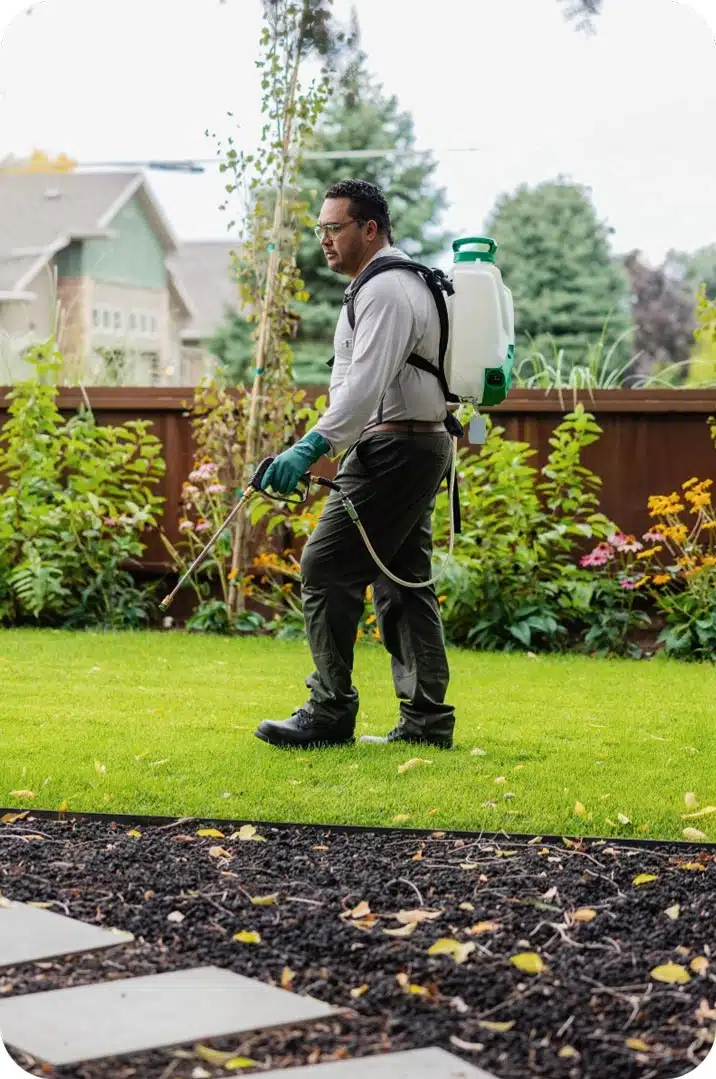A1 Charlotte Pest Control Companies - Your Neighborhood Pest Professionals
A1 Charlotte Pest Control Companies - Your Neighborhood Pest Professionals
Blog Article
Bed Pest Treatment Malfunction: Contrasting Chemical Vs. Non-Chemical Solutions
In the realm of insect control, specifically when managing the relentless issue of bed pests, the selection between chemical and non-chemical therapy services can be a pivotal one. Both techniques provide distinct benefits and downsides, influencing factors such as effectiveness, security considerations, and total expense. By examining the nuanced details of each technique, a more clear understanding of which course to pursue in addressing a bed bug invasion can be achieved.
Efficiency of Chemical Therapies
Chemical therapies for bed insect infestations have actually been extensively acknowledged for their fast and powerful efficiency in getting rid of these pests. When considering the efficiency of chemical treatments, it is crucial to understand that they can provide a thorough and quick remedy to a bed insect problem. Expert pest control men often rely upon insecticides to target bed pests at different phases of their life process, including nymphs, eggs, and adults. These chemicals commonly work by interfering with the bed bugs' nerve system, leading to paralysis and eventual fatality.
In addition, chemical therapies have the benefit of using residual impacts, meaning that they can proceed to get rid of bed bugs even after the first application. This recurring action is especially helpful in combating any type of possible re-infestations. Furthermore, the rapid activity of chemical treatments can bring alleviation to people dealing with extreme bed bug invasions, allowing them to gain back control of their home swiftly.
Safety Interest In Chemical Solutions
When using chemical solutions for bed bug therapy is making sure the safety and security of owners and the environment,One crucial aspect that requires careful consideration. While chemical therapies can be effective in getting rid of bed insects, they may pose dangers if not handled properly. One of the main security interest in chemical options is the potential harm they can cause to human health. Exposure to particular chemicals utilized in bed bug treatments can bring about breathing problems, skin irritation, or other unfavorable reactions, specifically in people with pre-existing problems or level of sensitivities. Furthermore, inappropriate application or dosage of chemical pesticides can result in harmful residues sticking around in the cured area, posing long-lasting health dangers to occupants.
Additionally, the environmental effect of chemical solutions is one more substantial factor to consider. Some chemicals utilized in bed bug treatments might be unsafe to valuable pests, wild animals, and ecosystems if they leach right into the soil or water systems. It is necessary to make use of chemical treatments deliberately, adhering to security guidelines, and thinking about less toxic options to mitigate these threats and make certain the safe and reliable click this administration of bed insect invasions.
Advantages of Non-Chemical Approaches
Considering the possible security issues and ecological influence connected with chemical remedies for bed pest therapy, exploring non-chemical approaches presents a promising alternative with a number of distinctive advantages. Non-chemical therapies are environmentally friendly, as they do not add to air or water pollution, making them a lasting option for bug control.
Additionally, non-chemical services can be efficient in targeting bed insects, consisting of hard-to-reach locations where chemical treatments may not penetrate - A1 exterminators charlotte nc. Techniques such as warm therapy, vacuuming, heavy steam cleansing, and mattress coverings provide detailed eradication without the use of damaging chemicals.
Limitations of Non-Chemical Treatments

Furthermore, non-chemical treatments frequently call for multiple applications to accomplish effective eradication. This can be taxing and may not always guarantee complete removal of all bed insects and their eggs, especially in hard-to-reach or hidden places.
In addition, the success of non-chemical treatments heavily relies upon correct execution and thoroughness, which can be testing for people without specialist knowledge. Insufficient application of non-chemical approaches may lead to incomplete removal, resulting in relentless problems and the need for additional treatments.
As a result, while non-chemical treatments have their advantages, it is important to acknowledge these limitations and consider them when identifying one of the most reliable approach for handling bed bug invasions.
Price Contrast: Chemical Vs. Non-Chemical Options
Provided the constraints connected with non-chemical therapies, an important element to evaluate in the context of bed insect management is the cost contrast between chemical and non-chemical options. In contrast, non-chemical therapies like warmth treatment or vapor can be which termite treatment is best a lot more expensive, with expenses varying from $1,000 to $6,000 for a whole home. While the first price of chemical treatments may appear reduced, numerous therapies might be called for to totally eliminate the invasion, potentially enhancing the overall expense.
Final Thought

Taking into check my reference consideration the prospective security issues and environmental effect associated with chemical solutions for bed bug therapy, discovering non-chemical approaches presents an appealing alternative with a number of distinctive benefits.Given the restrictions connected with non-chemical treatments, an essential facet to examine in the context of bed bug administration is the expense contrast in between chemical and non-chemical choices. In comparison, non-chemical treatments like heat treatment or heavy steam can be more expensive, with costs ranging from $1,000 to $6,000 for a whole home. While the preliminary cost of chemical treatments might seem lower, multiple therapies might be required to completely get rid of the problem, potentially increasing the overall price.In conclusion, when contrasting chemical and non-chemical bed insect therapy options, it is crucial to think about efficiency, safety and security, advantages, limitations, and price.
Report this page